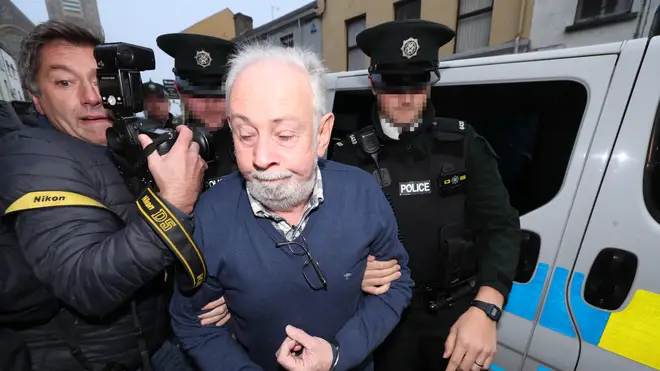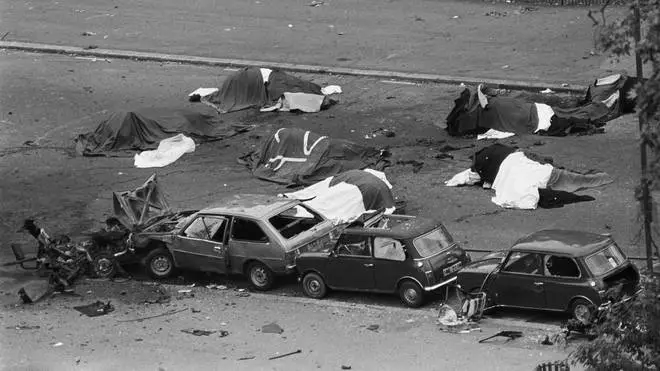
Iain Dale 10am - 1pm
18 December 2019, 10:52

Relatives of four British soldiers killed in the July 1982 Hyde Park bombing have won a High Court civil case against suspect John Downey.
A High Court judge has ruled against suspect John Downey on a damages claim by relatives of the Hyde Park bomb victims.
Family members of Royal Household Cavalrymen who died in the July 1982 blast brought the civil action against the convicted IRA member after a criminal case collapsed at the Old Bailey in 2014.
Mrs Justice Yip ruled on Wednesday that Downey was an "active participant" in the bombing and was jointly responsible with others for the attack, which left 31 other people injured.
Squadron Quartermaster Corporal Roy Bright, 36, Lieutenant Dennis Daly, 23, Trooper Simon Tipper, 19, and Lance Corporal Jeffrey Young, also 19, were killed by a car bomb as they rode through the central London park to attend the changing of the guard.
Announcing her conclusions, Mrs Justice Yip said: "This was a deliberate, carefully planned attack on members of the military.
"I have found that the defendant was an active participant in the concerted plan to detonate the bomb, with the intent to kill or at least to cause serious harm to members of the Household Cavalry."
Seven horses had to be put down and another horse, Sefton, survived terrible injuries as a result of the attack.
The case will now progress to a second stage to determine the amount of damages to be awarded.

During the case, London's High Court heard the objective of the 1982 Hyde Park bombing was the "cold-blooded killing" of British soldiers.
Relatives of the four Royal Household Cavalrymen killed more than 37 years ago a have won an action against convicted IRA member John Downey.
The four victims, who were making their way to the changing of the guard at Buckingham Palace, died after a car bomb exploded in Hyde Park.
Lord Brennan QC told the hearing that justice should "properly be done" for the bereaved families as there was "clear" evidence of Downey's involvement in the attack.
"Thirty-seven years after, if justice can properly be done, as it can be in this case, then let it be done," he said.
"Its (the bombing's) objective was cold-blooded killing, with vicious brutality and maximum harm.
"The claimant's case is that these devastating consequences were intended, including the murder of these four soldiers."